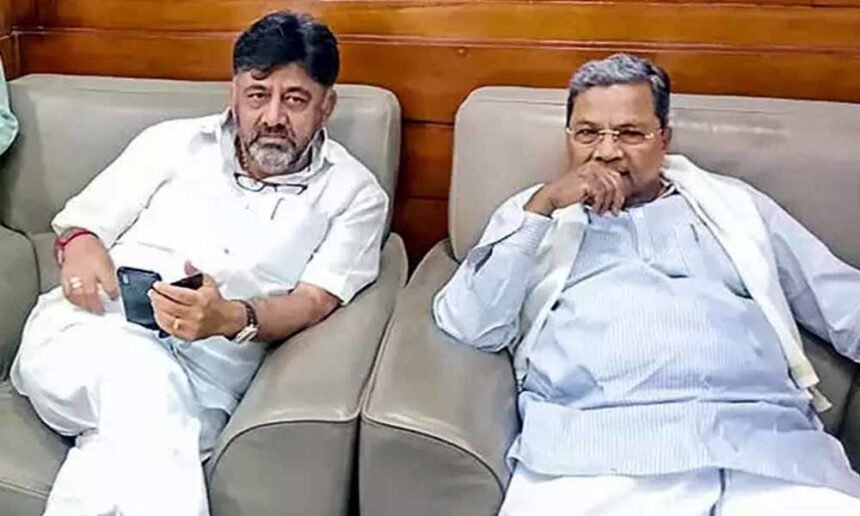The process of selecting a new Chief Minister for Karnataka has hit a roadblock as rival claimants, D.K. Shivakumar and Siddaramaiah, have remained steadfast in their positions, leading to inconclusive deliberations within the Congress leadership. The party’s president, Mallikarjun Kharge, held meetings with both leaders on May 16, but failed to reach a consensus. Consequently, another round of discussions is scheduled for May 17 in an attempt to break the impasse.
The power struggle between D.K. Shivakumar and Siddaramaiah has intensified within the Karnataka Pradesh Congress Committee (KPCC). Both leaders have strong support bases and are unwilling to back down, resulting in a deadlock. The selection of a Chief Minister is crucial for the Congress party, as it aims to consolidate its position and form a stable government in the state.
D.K. Shivakumar, the current president of the KPCC, is a prominent Congress leader known for his organizational skills and influence over party workers. He has been actively campaigning to be appointed as the Chief Minister, citing his experience and commitment to the party’s principles. Shivakumar’s supporters argue that his elevation to the top post would bring new energy and leadership to the party in Karnataka.
On the other hand, Siddaramaiah, a former Chief Minister of Karnataka, is a seasoned politician with a significant following in the state. He has held the Chief Minister’s position in the past and believes he is the most suitable candidate to lead the party once again. Siddaramaiah’s supporters highlight his administrative experience and assert that his return would ensure continuity and stability in governance.
The Congress president, Mallikarjun Kharge, recognizes the importance of resolving the issue promptly to maintain party unity and avoid further internal divisions. With both D.K. Shivakumar and Siddaramaiah refusing to relent, Kharge finds himself in a challenging position of mediating between the two strong-willed leaders. He is expected to employ his vast political experience and negotiating skills to find a viable solution.
Kharge’s meetings with Shivakumar and Siddaramaiah on May 16 were aimed at bridging the differences and reaching a consensus. However, the discussions did not yield the desired outcome, necessitating further dialogue. Recognizing the urgency of the matter, Kharge has scheduled another round of meetings for May 17 in a renewed attempt to resolve the deadlock.
The outcome of the deliberations holds significant implications for the Congress party in Karnataka. It is crucial for the leadership to choose a candidate who can effectively lead the party and address the aspirations of its members and supporters. The party’s performance in future elections may depend on the decision made in selecting a Chief Minister who can unite the party and connect with the electorate.
The Congress leadership faces the challenge of striking a delicate balance between the aspirations of Shivakumar and Siddaramaiah while ensuring that the party’s overall interests are not compromised. The forthcoming discussions will likely involve a careful evaluation of the leaders’ capabilities, popularity, and the potential impact of their appointment on the party’s electoral prospects.
As the deliberations continue, the Congress party in Karnataka finds itself at a critical juncture. The selection of a Chief Minister will not only shape the future of the party in the state but also have broader political ramifications. All eyes are on Mallikarjun Kharge as he seeks to navigate the complexities of intra-party dynamics and arrive at a decision that can bring unity and momentum to the Congress in Karnataka.


